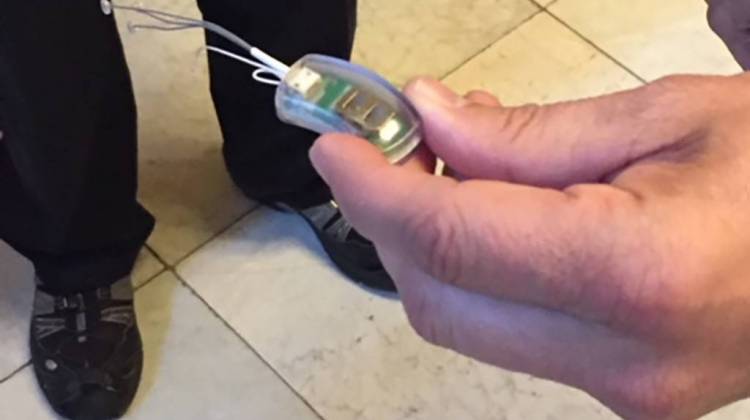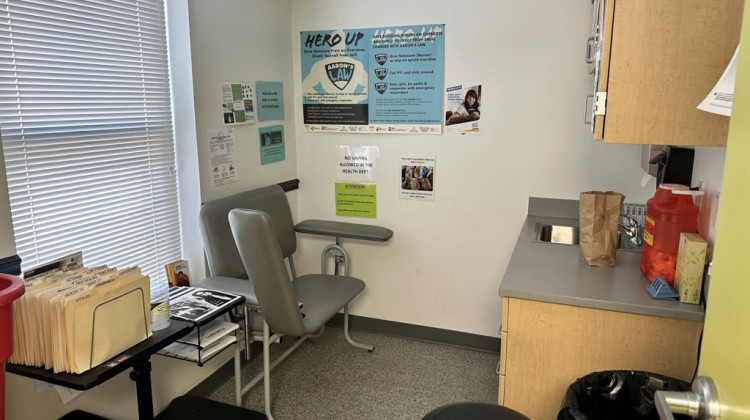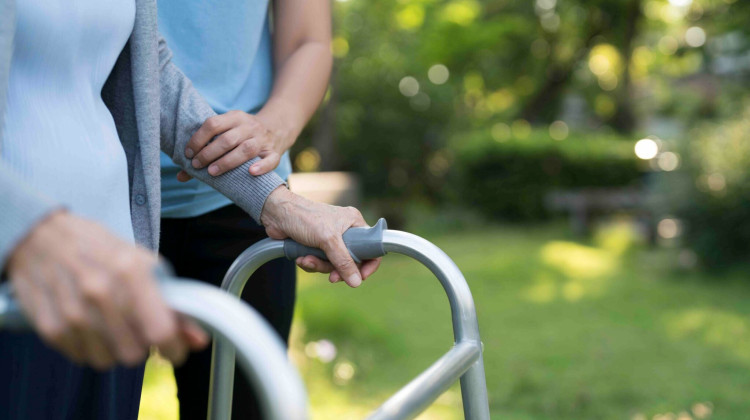The FDA has approved a device developed in Indiana that helps reduce opioid withdrawal symptoms. The NSS-2 BRIDGE is a nerve-stimulating device placed behind the ear which sends electrical pulses to the brain.
It’s been shown to reduce severe effects of opioid withdrawal, such as nausea and vomiting. Sen. Jim Merritt (R-Indianapolis) says the technology fills a gap in treatment.
READ MORE: New Electric Device Guides Patients Through Crucial Withdrawal Period
“People will detox,” says Merritt. “They will withdrawal from drugs if it’s a simpler process and this is it.”
Here’s how it works: the bridge is flat, made of plastic and is about the size of a quarter. It sticks to a person’s head with adhesive. Thin wires come out of the bridge and are shallowly implanted in the skin around the ear. Tiny electric pulses travel through the wires down the nerves to parts of the brain that control pain and change the sensation, reducing a person’s perception of discomfort.
After five days, the bridge is taken off and thrown away — the batteries won’t recharge. Then, the person is ushered into counseling and other medication.
Indiana-based Innovative Health Systems developed the device and manufactures it here. Company president Brian Carrico says FDA approval means more people will be able to use the bridge.
“That’s the biggest key now is we move to a neurology category with this indication that makes us insurance eligible,” says Carrico.
Without insurance, it costs around $1,000 for a person to buy the device and get it attached.
 DONATE
DONATE










 Support WFYI. We can't do it without you.
Support WFYI. We can't do it without you.